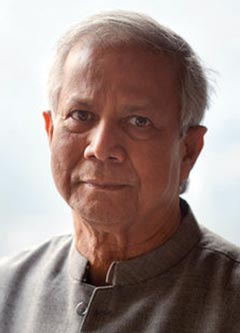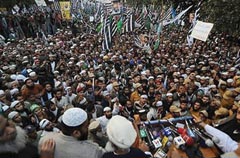|
|
|
ADVERTISEMENTS
|
|
PREMIUM
- HAPPY HOLIDAYS!
- Siliconeer Mobile App - Download Now
- Siliconeer - Multimedia Magazine - email-Subscription
- Avex Funding: Home Loans
- Comcast Xfinity Triple Play Voice - Internet - TV
- AKSHAY PATRA - Bay Area Event - Sat. Dec 6
- Calcoast Mortgage - Home Loans
- New Homes in Silicon Valley: City Ventures - Loden Place - Morgan Hill
- Bombay to Goa Restaurant, Sunnyvale
- Buying, Sellling Real Estate in Fremont, SF Bay Area, CA - Happy Living 4U - Realtor Ashok K. Gupta & Vijay Shah
- Sunnyvale Hindu Temple: December Events
- ARYA Global Cuisine, Cupertino - New Year's Eve Party - Belly Dancing and more
- Bhindi Jewellers - ROLEX
- Dadi Pariwar USA Foundation - Chappan Bhog - Sunnyvale Temple - Nov 16, 2014 - 1 PM
- India Chaat Cuisine, Sunnyvale
- Matrix Insurance Agency: Obamacare - New Healthcare Insurance Policies, Visitors Insurance and more
- New India Bazar: Groceries: Special Sale
- The Chugh Firm - Attorneys and CPAs
- California Temple Schedules
- Christ Church of India - Mela - Bharath to the Bay
- Taste of India - Fremont
- MILAN Indian Cuisine & Milan Sweet Center, Milpitas
- Shiva's Restaurant, Mountain View
- Indian Holiday Options: Vacation in India
- Sakoon Restaurant, Mountain View
- Bombay Garden Restaurants, SF Bay Area
- Law Offices of Mahesh Bajoria - Labor Law
- Sri Venkatesh Bhavan - Pleasanton - South Indian Food
- Alam Accountancy Corporation - Business & Tax Services
- Chaat Paradise, Mountain View & Fremont
- Chaat House, Fremont & Sunnyvale
- Balaji Temple - December Events
- God's Love
- Kids Castle, Newark Fremont: NEW COUPONS
- Pani Puri Company, Santa Clara
- Pandit Parashar (Astrologer)
- Acharya Krishna Kumar Pandey
- Astrologer Mahendra Swamy
- Raj Palace, San Jose: Six Dollars - 10 Samosas
CLASSIFIEDS
MULTIMEDIA VIDEO
|
|
|
|
|
NEWS DIARY
Microcredit Pioneer Faces Inquiry in Bangladesh
Nepal's Maoists Hand over Control of Ex-rebel Army
Strategic Partnership
Thousands Rally
$1.28B Wind Power Deal
Office Torched
Pak Rebuffs Call
ADB to provide $7.4B
Microcredit Pioneer Faces Inquiry in Bangladesh
 Muhammad Yunus Muhammad Yunus
Muhammad Yunus, Nobel Peace Prize laureate and a pioneer of microcredit is in trouble.
Microcredit, the idea that Yunus popularized as a path out of penury for those long excluded from the banking system, has increasingly come under scrutiny. Scholars have cast doubt on its effectiveness in fighting poverty.
The government of Bangladesh has ordered a wide-ranging inquiry into the microfinance institution he founded 34 years ago, Grameen Bank, after a Norwegian documentary accused him of mishandling donors’ money. Norway’s government has said no money was misused. Still, Yunus’s troubles will deepen what has become a global crisis in microfinance that threatens to undermine the very concept — small loans to poor people without collateral — on which his reputation rests.
On one level, his troubles seem to be largely political.
But lost in the talk of politics is a more complex question: how to ensure that Grameen Bank, which has 8.3 million borrowers, has loaned $10 billion and has become an indispensable part of Bangladesh’s social and economic fabric, outlives its charismatic founder? Yunus is now a decade beyond the bank’s mandatory retirement age, and apparently there is no successor in sight.
The Norwegian documentary accuses him of improperly moving $100 million that has been donated by Norway for microcredit to another Grameen nonprofit organization. The Norwegian government later confirmed that the money had been improperly moved, but it cleared Grameen of any wrongdoing.
Mahbubul Mokaddem Akash, an economist at the University of Dhaka who has been critical of Grameen Bank, said that while Yunus might be personally incorruptible, the bank needed strong governing practices and transparency if it was to thrive once its charismatic founder departed.
“The main focus should not be on personal corruption but on prudential management of the institution,” Akash said.
|TOP|
Nepal's Maoists Hand over Control of Ex-rebel Army
 Nepal's former Maoist combatants in Shaktikhor camp in Chitwan, Nepal. Nepal's former Maoist combatants in Shaktikhor camp in Chitwan, Nepal.
Nepal's Maoists have formally relinquished control of their People's Liberation Army, more than four years after ending a bloody insurgency.
The leader of the former guerrillas, now the main opposition party, handed control of 19,000 soldiers confined to cantonments around Nepal since the war ended in 2006 to a cross-party committee set up to decide their fate.
The handover will make little practical difference to the soldiers, who remain in the camps for the time being.
But it is seen as a crucial step towards resolving the fate of thousands of men and women whose lives have been on hold since the end of the war.
The peace agreement that ended Nepal's decade-long civil war says the former fighters should be allowed to join the state security forces, but resistance from the military and political disagreements have delayed the process.
Maoist leader Pushpa Kamal Dahal, better known by his nom de guerre Prachanda, or The Fierce One, said he hoped their future would soon be settled.
"The Maoist party is committed to taking the peace process to a conclusion by implementing the peace agreement," he told political leaders, foreign envoys and soldiers at the Shaktikhor cantonment, 110 miles south of Kathmandu.
"The decision to bring the combatants under the control of the special committee is one of the key moves towards implementing the agreement."
The continued existence of two armies in Nepal is viewed as an obstacle to lasting peace in the troubled country, which has been without a government for nearly seven months.
|TOP|
Strategic Partnership
United States President Barack Obama dropped in during key talks between National Security Adviser Shivshankar Menon and his U.S. counterpart Tom Donilon.
"The president joined the meeting (between Menon and Donilon) and reaffirmed his commitment to building a true global, strategic partnership with India," the White House said in a statement after the talks.
Obama is believed to have been present at the Menon-Donilon meeting at the White House for nearly 15 minutes, during which he clearly reflected that he remained focused on strengthening the relationship between India and the US.
"The president relayed his priorities for the coming year, including advancing our bilateral economic relationship and making progress on nuclear security efforts," the White House said.
On a day when Obama was busy with the unfolding developments in Egypt, his joining of the Menon-Donilon meeting at the White House reflects the importance he attached to the India-U.S. relationship.
U.S. Secretary of State Hillary Clinton hosted a lunch for Menon, who is in the U.S. at the invitation of Donilon to follow up on the outcomes of Obama and Indian Prime Minister Manmohan Singh's summit in India in November last year. Clinton, who re-scheduled her meetings for the luncheon, had initially scheduled a dinner for Menon, which was cancelled because of the late arrival of the NSA due to the major snowstorm in the region.
"Mr Donilon and Mr Menon discussed ways to advance our bilateral agenda over the coming year, including the implementation of initiatives launched during the summit, as well as building new platforms for collaboration that fulfill the promise of our global strategic partnership," the White House said.
|TOP|
Thousands Rally
 About 40,000 people rallied in Lahore protesting against reforms of a blasphemy law. About 40,000 people rallied in Lahore protesting against reforms of a blasphemy law.
About 40,000 people rallied in Lahore in the latest protest against proposed reforms of a controversial blasphemy law, police said.
Religious groups have held protests in several Pakistani cities since former Punjab governor Salman Taseer vowed to amend the law, that was recently used to sentence a Christian woman to death
Taseer's stance enraged the country's increasingly conservative religious base and he was assassinated on Jan. 4 by his own security guard, who has said he killed the governor over his support for reform.
Under intense pressure from religious parties, Pakistan's government has since said it had no intentions to amend the law.
Demonstrators from religious parties Jamaat-e-Islami, Jamiat Ulema-e-Pakistan and Jamaat-ud-Dawa, a charity linked with 2008 Mumbai terrorist attacks, held banners in support of Mumtaz Qadri — the police commando who shot dead Taseer.
Participants chanted slogans including "Free Mumtaz Qadri", "We are ready to sacrifice our lives for the honor of Prophet Mohammad" and "Changes in blasphemy law not accepted."
An AFP reporter saw activists carrying effigies of Pope Benedict XVI and Pakistani minorities affairs minister Shahbaz Bhatti shouting slogans "Allah-o-Akbar."
Local government official Tariq Zaman put the overall number of protesters at 40,000.
Leaders of Pakistan Muslim League Nawaz and Quaid-i-Azam group also addressed the rally.
Event organizers called the brothers of two Pakistani men shot dead by a U.S. national in Lahore on Thursday to the stage and pledged their support for the victims' families in pursuing a murder case.
|TOP|
$1.28B Wind Power Deal
 A Suzlon windfarm in Dhule. A Suzlon windfarm in Dhule.
Suzlon Energy, the world's third-biggest wind turbine maker, has announced that it has received a $1.28 billion order from Caparo Energy to develop 1,000 megawatts of wind power projects in India.
The projects will produce 500 megawatts of energy from March 2012 with a further 500 megawatts added by the same month the next year, Suzlon said in a statement.
Suzlon shares rose as much as 2.09 percent to a day's high of 51.25 rupees but fell back to 49.8 on profit-taking at the close — posting a nearly one percent fall.
Caparo Energy is a Channel Island-registered firm and listed on London's junior Alternative Investment Market.
The deal was signed with a Caparo Energy subsidiary — Caparo Energy India — which already develops wind power projects in India.
"This has been a strong year for wind in the Indian power market," said the founder-chairman of the Suzlon group, Tulsi Tanti.
"With large players like Caparo entering the market, we are seeing independent wind power producers becoming a major force."
Indian billionaire Tanti has capitalized on rising international concern over global warming and climate change widely blamed on the burning of fossil fuels to rapidly expand his firm.
Suzlon projects now generate some 15,000 megawatts of wind energy capacity in 25 countries worldwide.
India is under pressure to increase its use of renewable sources and reduce its reliance on dirty coal to meet its growing energy needs, as the country's economy expands.
Coal currently accounts for nearly 55 percent of India's total energy production with wind providing 10 percent of power from renewable sources.
|TOP|
Office Torched
Unknown assailants torched the offices of a Sri Lankan website critical of the government.
"The main office of the website comprising the computer hall and the most precious and valuable library have been completely destroyed," Lanka-e-News said in its own report on the attack.
"For many days now, we learnt from neighbors, unknown men have been carrying out surveillance outside and making inquiries about staff. Last night a caller threatened me that I would be killed," said Bennet Rupasinghe, news editor of the widely read website.
"All this is because we have been posting stories critical of the government," he said.
The office was doused with petrol and set on fire, he said. A computer screen exploded, which alerted the neighborhood.
There was an earlier attack on the offices of the website last year when it was housed in Nugegoda, he said.
Last year, the editor of the website, Sandaruwan Senadheera, and his family fled to the United Kingdom after reported threats to his life.
"Since he was forced to leave, I have been facing a string of threats and intimidation for exposing corruption and reporting on matters disliked by those in high authority," Rupasinghe said.
The website's offices are now located in the Colombo suburb of Malabe.
President Mahinda Rajapaksa has ordered the "police to conduct an immediate investigation," spokesman Bandula Jayasekera told reporters.
Lanka-e-News said journalists have suffered "unprecedented" losses since the president came to power, including the killing of reporters and editors.
"It is well to note that under the President Rajapaksa regime, the free media had suffered most and sustained losses to persons and property on an unprecedented scale in the media history of Sri Lanka," the site said.
"Sunday Leader Editor Lasantha Wickremetunge and 13 media personnel have been killed since this government came to power. The Professional Journalists Association Secretary was abducted and his legs were broken. A Lanka-e-News political columnist went missing. Sirisa (a leading TV network) was attacked and a claymore bomb was hurled at it," the report said.
"This is the government's new media culture. No dissent is tolerated. These attacks, intimidation of journalists are government's response to any view or facts they (the government) dislike," Mangala Samaraweera, the media head of the main opposition United National Party (UNP), told CNN.
Samraweera is a former Media Minister and Foreign Minister in President Rajapaksa's government.
|TOP|
Pak Rebuffs Call
 Activists set fire to a U.S. flag during a protest in Islamabad. Pakistan rebuffed a call from the United States for the immediate release of an American man who shot dead two men in a Lahore street. Activists set fire to a U.S. flag during a protest in Islamabad. Pakistan rebuffed a call from the United States for the immediate release of an American man who shot dead two men in a Lahore street.
Pakistan has rebuffed a call from the United States for the immediate release of an American man who shot dead two men in a Lahore street, saying its legal process must be respected.
The U.S. embassy had claimed diplomatic immunity on behalf of Raymond Davis, previously described as a consulate employee, who is under investigation on double murder charges after shooting dead the two motorcyclists this week.
"This matter is sub judice in a court of law and the legal process should be respected," Pakistani foreign ministry spokesman Abdul Basit said in a statement, adding that a report was awaited from Punjab police.
Davis, who has been held at a Lahore police station since the incident, appeared before a magistrate's court and said he had fired in self-defense. He was remanded into police custody for six days.
Two days after the deadly shooting, the U.S. embassy in Islamabad released a statement saying he had diplomatic status and was therefore being detained unlawfully.
"When detained, the U.S. diplomat identified himself to police as a diplomat and repeatedly requested immunity under the Vienna Convention on Diplomatic Relations," it said.
"Local police and senior authorities failed to observe their legal obligation to verify his status with either the U.S. consulate general in Lahore or the US embassy in Islamabad.
"Furthermore, the diplomat was formally arrested and remanded into custody, which is a violation of international norms and the Vienna Convention, to which Pakistan is a signatory."
|TOP|
ADB to provide $7.4B
The Asian Development Bank will extend $7.4 billion assistance to India for developing the country's infrastructure for a period of three years from 2011-13.
"ADB and the Government of India have agreed on a new three-year business plan that will provide lending assistance of $7.4 billion to support inclusive and environmentally sustainable growth in the country," the multi-lateral lending agency said in a statement.
A major thrust of ADB's India Country Operations Business Plan for 2011-2013 will be to support infrastructure development, particularly through public-private partnership programs, the statement added.
Continued assistance for development of the vital energy sector by means of projects involving clean and renewable energy sources, including solar power is another key focus area, ADB said.
"ADB is pleased to note that approval of the India COBP comes against the backdrop of record performance by ADB in terms of both program delivery and portfolio performance in 2010," ADB Country Director (India) Hun Kim said.
In 2010 ADB approved loans amounting to $2.2 billion while its annual disbursement reached a record level of $1.7 billion.
"We very much look forward to continue to work closely with the Government of India in implementing the projects in the COBP to help promote inclusive growth and reduce poverty in the country," Kim said.
|TOP|
|
|
|
|
|
|